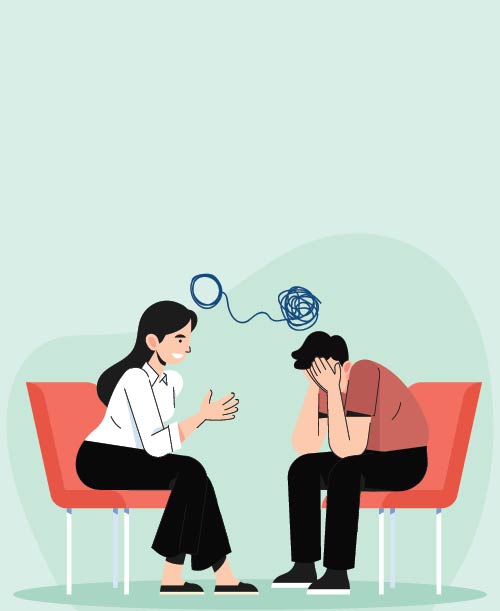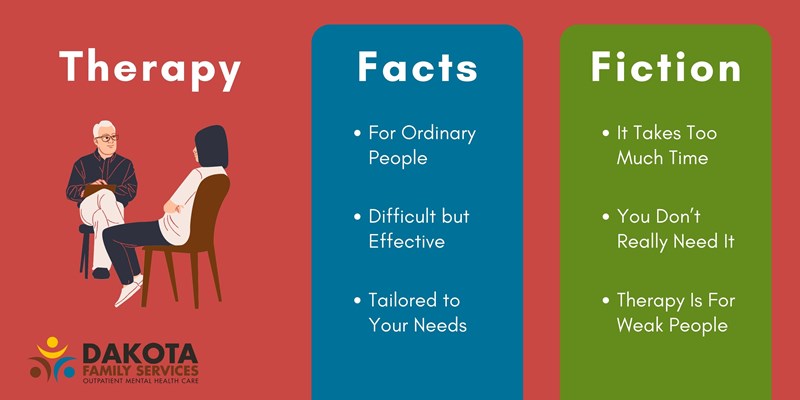Opening the Secrets of Mental Wellness: An Overview of Therapy and Therapy Options
Psychological wellness is a complex and crucial facet of general well-being. Numerous counseling and therapy options exist to deal with various psychological obstacles. Each technique offers unique advantages and approaches customized to individual demands. Comprehending these choices is important for anyone seeking to improve their mental wellness. Couples Therapy. What elements should one take into consideration when discovering these methods? The answer might reveal a path to a healthier psychological state
Comprehending Mental Health and Its Relevance
Psychological wellness encompasses the psychological, psychological, and social health of individuals, significantly influencing just how they believe, feel, and act. Its significance can not be overstated, as it affects every element of life, including connections, job performance, and general lifestyle. Individuals with good mental wellness often tend to manage tension better, keep much healthier connections, and make informed choices. Alternatively, inadequate mental health can lead to emotional distress, impaired functioning, and various mental illness, which may need expert treatment. Comprehending psychological health is essential for acknowledging the signs of distress and the need for assistance. Recognition likewise advertises empathy and reduces stigma, encouraging individuals to look for assistance when needed. By focusing on mental health, neighborhoods can cultivate environments that support emotional health, eventually causing much healthier, a lot more durable individuals. This foundation works as a crucial step towards efficient mental health and wellness therapy and therapy choices.
Sorts Of Therapy Approaches
Therapy techniques differ widely, each customized to meet the unique needs of individuals seeking assistance. Among the most typical types are cognitive-behavioral therapy (CBT), which concentrates on recognizing and changing negative thought patterns, and person-centered therapy, which stresses empathy and acceptance. Psychodynamic therapy explores unconscious processes and past experiences to understand present actions, while solution-focused brief therapy intends to recognize services instead of explore problems.Additionally, household treatment addresses relational characteristics and communication within households, cultivating much healthier interactions. Group therapy provides a common space for participants to share experiences and support one another. Various other methods consist of existential therapy, which motivates people to find definition and purpose, and art or music therapy, which makes use of imaginative expression as a healing tool. Each method offers distinctive strategies and philosophies, enabling clients to locate one of the most suitable method for their personal development and healing journeys.
Exploring Various Therapy Techniques
In the domain of psychological health and wellness counseling, different therapy modalities provide unique approaches to therapy. Cognitive Behavior modification stresses the connection between behaviors and thoughts, while Psychodynamic Treatment explores subconscious influences on emotional wellness. Additionally, Mindfulness-Based Techniques advertise present-moment awareness as a way to boost emotional guideline and general mental wellness.
Cognitive Behavioral Treatment
Cognitive Behavior Modification (CBT) sticks out as one of one of the most extensively exercised and researched techniques in mental health therapy. This strategy concentrates on the affiliation in between actions, thoughts, and feelings, emphasizing that altering unfavorable idea patterns can bring about enhanced psychological health and behavioral changes. CBT is structured, usually entailing a limited variety of sessions, and aims to furnish people with sensible abilities to manage their symptoms. It is effective for a range of problems, including anxiousness disorders, anxiety, and trauma. By utilizing techniques such as cognitive restructuring and exposure therapy, CBT promotes strength and encourages clients to confront difficulties head-on, making it a beneficial choice in the landscape of mental wellness therapies.
Psychodynamic Therapy Approaches
Psychodynamic treatment techniques provide a deep exploration of the unconscious mind and its impact on actions and emotional health. Rooted in Freudian theory, these methods stress the importance of very early youth experiences and subconscious conflicts. Through strategies such as cost-free association, dream analysis, and transfer, individuals gain insight into their thoughts and feelings, cultivating self-awareness and understanding. This restorative modality encourages customers to uncover quelched emotions and unsettled problems, which can be pivotal in attending to present mental challenges. By analyzing the interaction between previous experiences and existing behaviors, psychodynamic treatment aims to advertise emotional recovery and personal development. Eventually, it gives a structure for people to discover complicated internal dynamics that affect their mental wellness.

Mindfulness-Based Techniques
While standard therapies frequently concentrate on past experiences, mindfulness-based techniques prioritize present-moment understanding as a pathway to psychological well-being. These methods, including mindfulness-based cognitive therapy (MBCT) and mindfulness-based anxiety reduction (MBSR), encourage people to involve fully with their thoughts and sensations without judgment. Experts discover to observe their mindsets, cultivating a greater understanding of psychological triggers and feedbacks. This technique not just eases signs and symptoms of stress and anxiety and anxiety yet likewise enhances general psychological durability. By incorporating mindfulness exercises, such as meditation and deep breathing, clients cultivate a sense of peace and clarity. Inevitably, mindfulness-based strategies equip people to navigate life's challenges with raised recognition and approval, promoting a much healthier relationship with their thoughts and emotions.
The Duty of a Specialist or Therapist
A competent specialist or therapist plays a crucial duty in sustaining individuals through their mental wellness trips. They provide a secure, non-judgmental room where clients can reveal their sensations and thoughts freely. Mental Health Resources. By employing numerous therapeutic techniques tailored to each person's requirements, therapists aid clients check out underlying issues that may contribute to their psychological wellness challenges.Therapists provide support and tools to handle tension, stress and anxiety, clinical depression, and other psychological difficulties. Their training outfits them to recognize patterns in actions and believed procedures, helping with insights that cause personal growth. They likewise foster a solid therapeutic alliance, which is important for effective outcomes.Moreover, specialists remain fully commited to confidentiality and ethical my blog standards, making certain a relying on setting. Inevitably, the role of a specialist or counselor is to empower people, motivating them to develop durability and much healthier coping approaches while guiding via life's complexities
Exactly how to Pick the Right Therapy or Therapy Alternative
Picking the right counseling or treatment option begins with assessing specific needs. It is vital to comprehend personal difficulties and goals before discovering various treatment styles. This fundamental action can considerably affect the efficiency of the chosen approach.
Examine Your Needs

Just how can individuals efficiently examine their psychological health requires when evaluating therapy or treatment options? Initially, they should mirror on their emotional state and recognize specific problems, such as connection, anxiety, or anxiety difficulties. Journaling can be a helpful tool our website for tracking ideas and sensations gradually. Additionally, people might take advantage of looking for responses from trusted friends or relative relating to perceived changes in behavior or state of mind. It is also practical to review individual goals for treatment, such as improving coping skills or gaining insight into individual patterns. Lastly, investigating various counseling techniques and their suitability for certain demands can help in making an enlightened selection. Ultimately, self-awareness plays an essential role in selecting the best course for psychological health support.
Discover Therapy Designs
While going across the diverse landscape of therapy alternatives, people should take into consideration different styles of counseling to locate the best suitable for their unique demands. Cognitive Behavior Treatment (CBT) concentrates on transforming negative idea patterns, while Psychodynamic Therapy discovers unconscious procedures and past experiences. Humanistic approaches emphasize individual development and self-actualization, promoting a helpful setting. Additionally, mindfulness-based therapies grow present-moment awareness, assisting emotional guideline. For those looking for structure, Solution-Focused Brief Treatment targets specific goals and services. Team therapy gives a common setting for common experiences and support. Inevitably, people should certainly show on their choices, comfort levels, and details obstacles, guaranteeing they choose a therapeutic style that reverberates with their personal journey toward mental well-being.
Overcoming Barriers to Looking For Aid

The Benefits of Counseling and Treatment for Mental Wellness
Looking for help for mental health and wellness obstacles can bring about considerable enhancements in general wellness. Therapy and treatment supply people with a secure room to discover their ideas and sensations, cultivating self-awareness and personal growth. These professional solutions gear up clients with dealing approaches and problem-solving skills customized to their one-of-a-kind situations.Moreover, treatment can minimize signs of stress and anxiety, anxiety, and other psychological health and wellness problems, enhancing emotional strength. Normal sessions advertise responsibility and urge individuals to establish and achieve individual goals. With numerous healing techniques, such as cognitive-behavioral treatment or mindfulness practices, clients discover to reframe negative thoughts and create much healthier behaviors.Additionally, the healing connection itself can be a resource of assistance, aiding to combat isolation and solitude. On the whole, taking part in therapy and treatment is an aggressive step towards attaining mental health, allowing people to lead even more satisfying lives.
Regularly Asked Questions
Just How Lengthy Does Therapy or Treatment Usually Last?
The period of therapy or treatment differs considerably, often lasting from a few sessions to numerous months or years. Factors influencing this consist of the person's certain demands, the kind of therapy, and therapeutic objectives.
What Should I Expect Throughout My First Session?
During the initial session, individuals can expect an intro, discussion of worries, and the therapist's approach. They may finish evaluations and develop objectives, promoting a secure environment for open interaction and structure relationship.

Are There Any Risks Linked With Therapy?
Therapy can include risks, such as psychological pain, susceptability, or confronting agonizing memories. While these difficulties may develop, they can additionally result in personal growth and recovery, making the healing process facility yet possibly satisfying.
Exactly How Can I Inform if My Specialist Is a Great Fit?
Identifying if a specialist is a great fit involves assessing comfort, communication style, and therapeutic technique. Positive connection and progression towards goals are signs of an appropriate suit, crucial for reliable mental health support.
Will My Insurance Policy Cover Counseling or Therapy Procedure?
Establishing insurance coverage for counseling or therapy sessions usually requires speaking to the insurance supplier straight. Policies differ substantially, so people should verify advantages, co-pays, and any kind of needed pre-approvals prior to going after therapy services. Amongst the most common kinds are cognitive-behavioral therapy (CBT), which focuses on recognizing and changing adverse thought patterns, and person-centered treatment, which emphasizes empathy and acceptance. Psychodynamic treatment checks out subconscious processes and previous experiences to comprehend existing behavior, while solution-focused brief therapy aims to recognize solutions rather than investigate problems.Additionally, household treatment addresses relational characteristics and communication within family members, cultivating much healthier communications. Other strategies consist of existential treatment, which urges people to find definition and objective, and art or music treatment, which makes use of imaginative expression as a healing device. Cognitive Behavioral Therapy stresses the link in between habits and ideas, while Psychodynamic Therapy discovers unconscious influences on psychological wellness. Cognitive Behavior Therapy (CBT) focuses on transforming negative thought patterns, while Psychodynamic Therapy explores unconscious procedures and previous experiences.